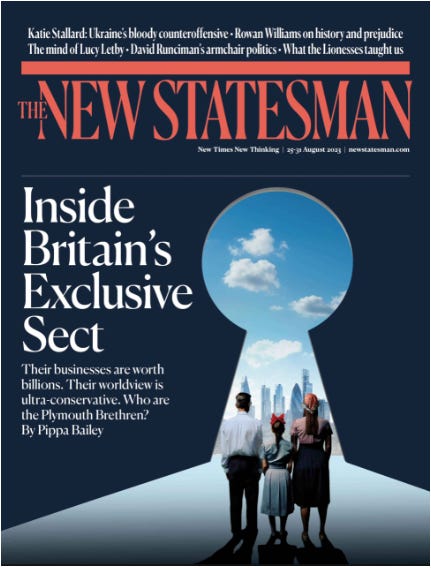Who are these people, these “Joyful Warriors” who show up at library board meetings, school board meetings and demand that books be removed? Are they truly worried for their children? Their community? Or do they fear that their cultural dominance is slipping away?
Perhaps, like the way newscasters cover politics in this country, this is just sport? We now treat our politics like Thursday night football. I sometimes wonder if this is just an opportunity for some to exercise their inner meanness.
I fear both the former and the latter are apt descriptions. Fear and meanness.
I was privileged to grow up in a house where the availability of reading materials was virtually endless. It helped that my mother was an elementary school teacher and my father was the manager of a book, magazine and newspaper distributor. My brother, sister and me did not want for reading material, ever. Sometimes, we even read books and magazines that had covers. There was no real restriction on what we read at any age. We were pointed in the general direction of what our parents felt was appropriate and we were then left to our own devices. On a few occasions, me and my siblings did turn to a book that was probably not right for our age, but we still turned out mostly OK.
And we had backup. If the book or magazine we wanted wasn't in the house and Dad couldn’t bring it home from the warehouse, we had the local branch library to fall back on. It was an amazing resource for me during my junior high school career because it was right across the street from school.
Are experiencing the leading edge of a new age or Puritanism? Will we soon see uniformed storm troopers of the 21st century piling up books and other cultural icons onto both physical and virtual bonfires? Is it impossible to reason with these book banners?
I’m not sure you can reason with zealots. How do you convince them that “A Court of Thorns and Roses” won’t turn their child into a sexual deviant or ruin their “innocence?” If you want to prevent your local library from looking like nothing but a sea of empty shelves then you will have to turn up, show up, speak up, and state your case.

one__Teachers and librarians describe climate of fear
Personally, I found this article from Pen America hard to read. It feels, at least to me, that the whole movement to ban books, harass librarians and teachers is a movement that was designed in an incubator and allows people to put their displaced anger onto the people who could, in fact, actually help them solve their problems.
The fact that the teaching and librarian professions are losing staff says it all. Why would you want to work under conditions where every single decision you make is questioned and where, without warning, you could be attacked either verbally or even physically? Why are we removing things that explain the context of this giant sprawling country? How can we teach our children our history if we remove the history of slavery, Jim Crow, unions, cultural moments like Warhol and others?
None of this makes any sort of rational sense.

two__Atlanta Magazine publisher is worried about “wokeness”
One of the categories in the magazine world that is pretty resilient to almost any crisis is regional city and state magazines. Over the years, these publications have evolved from puff promotional pieces to rather good, long form investigative journalism pieces. These magazines often fill in the gaps that other local media will no longer cover.
Sure, they still do “Top Docs” and “Best Restaurants”, but they will also cover crime and corruption in government and dig behind the scenes of how their community works.
I work with some regional publishers, so I’ve long been fascinated with the story of Hour Media and Emmis Communications. Finding this story about the struggle at Atlanta Magazine between the publisher and the editorial team and the underlying struggle to maintain editorial independence a fascinating and disturbing early morning read.
How do you maintain editorial integrity and independence? Do you reflect the community you are supposed to be covering? How do you do both and at the same time, reflect the powerful business interests that often make the economic engine of that community run and put ads in your magazine?
Well, maybe one thing you should do is actually look at what your readers (You know, the people who pay to read what your report on?) want to read. If that’s “woke” stuff, well then…

three__Inque Magazine costs $70 US for one issue…
This article has been making the rounds of other newsletters and I think it bears repeating.
Years ago, it was relatively easy to drop a new title onto the US newsstand to the tunes of tens of thousands of copies and keep that model up for a few issues until you knew where you were going. On the sub side, you bought a few lists, merged them, sent out a mailer and waited for subscriptions to roll in.
In one of my first jobs, ever in the magazine world, I recall a publisher I worked for celebrating the fact that on his magazine’s tenth anniversary, they finally turned an actual profit.
That does not happen anymore. I’ve noted in the past, the success these days with magazines from companies not named Hearst or DotDash seem to be small, indie niche titles that at best launch a few thousand copies very carefully. Often they avoid the newsstand altogether.
Inque Magazine is a great example of that. From a successful Kickstarter campaign, they are going to put out one collectible issue a year. For ten years. They’re going to charge a lot of money for it, but that money is covering all of their costs.
Is this the future of magazine publishing? It’s a future. The bigger publishers will continue what they do. Smaller publishers will operate on the margins and find some pretty innovative ways to reach their audiences.
four__UK’s New Statesman consolidates newsletters
What made me jump on this article is that it seems like a really good idea. How thinly does a publisher want to spread out their content? The New Statesman, a left leaning political journal from the UK recently consolidated all of its newsletters down only two: A daily release and a weekend update. Of even more interest? It’s running them through this platform, Substack.
Will this work? I think it might. It’s worth exploring. You don’t want to overwhelm your audience and when the newsletter trend starts to slow, and it will, you don’t want to be caught flatfooted.
five__Casey Newton: Why note taking apps don’t make us smarter…
The founder of the Platformer newsletter and former editor of The Verge took at look at his use of productivity and note taking software and discusses how they don’t necessarily work as advertised.
I’m inclined to agree. After reading the article I tried to list all of the productivity and note taking software I’ve used over the years and gave up pretty quickly. None of it ever really did what I wanted it to do and the biggest issue I ever had with it was that the software seemed to put an added step into what I was hoping would be something that would both make me more productive, and reduce the workload in the first place.
A big problem with many of these apps, Newton points out, is what he calls the “acid bath” of human cognition. “Multitasking is mostly a myth” he states and the lure of the internet frequently breaks our attention span.
At some point, all of this could come together with smarter AI and note taking apps that are designed to interact with the notes. But we’re not there right now.
Meanwhile, I’ll continue to handwrite my notes because I can’t seem to come up with anything else that seems to work for me.
Not Exactly Your Moment of Magazine Zen
I hope you enjoyed this newsletter. Please “Like” and subscribe. You’ll get a brand new release in your email in-box every Tuesday (Or sometimes Wednesday, like today, if things get a little hectic around here).
Want to find me on the social sites?
My Instagram link is here.
I’m now hanging out at Post.News and you can find me here on their app.
Every now and then I get to put on a suit and tie and comb my hair. Here’s my LinkedIn profile if you want to see me looking all professional.
I’m now on Blue Sky, thanks to a generous reader, but I confess I don’t see the actual point of the place. I’m not a fan of “Notes” here on Substack and I really don’t want to mess around with Threads. But if you have a recommendation of something else that you think is worthwhile, let’s hear it!
That’s all I’ve got for you this week. And now, the “It’s Tuesday” newsletter would like to offer you the top three ways to make sure you enjoy your Labor Day weekend:
#1: Turn off your email.
#2: Only use your phone to take photos. If you’re here from the 1970’s don’t think about that too much.
#3: See numbers one and two.
Have a great rest of the week.







